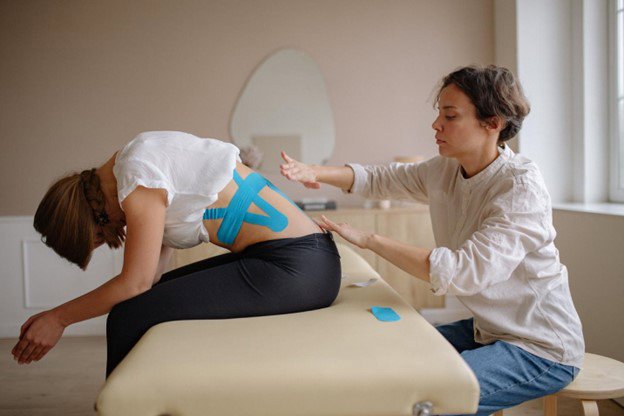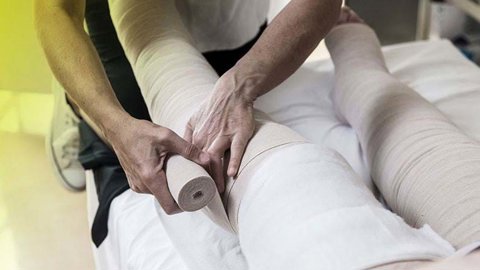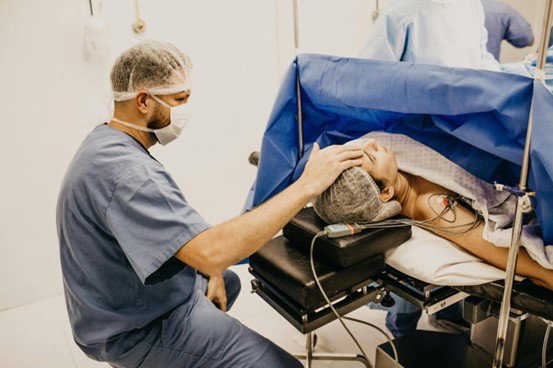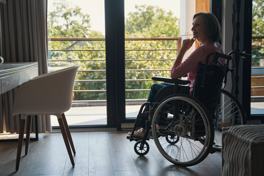Who can claim for a serious injury?
Anyone can make a claim for compensation if they have suffered a severe injury that wasn’t their fault. In order to initiate a claim, , you should ensure that you do so within 3 years of the accident happening. This is the case for most personal injury claims.
If you fall under the following category, you will be able to start a Serious Injury claim:
- Your life has been changed significantly due to the injuries sustained
- You are receiving lengthy treatment, that is ongoing
- Your injury required ongoing hospital visits
- You have had to take considerable time away from work, or are unable to return
Any accident resulting in a catastrophic injury can happen anywhere, and any time. Your rights to claim compensation for your injuries will remain the same regardless of if it is an accident at work, medical negligence, or injured in a public place.
What is the process of claiming for a serious injury?
If you unfortunately suffer a serious injury or an illness, it can be difficult to get your life and independence back. This is why our team of specialist Personal Injury Solicitors at Simpson Millar are here to help you move forward with your life, getting you back on track.
We’re here to help you with the process of claiming compensation for the injuries you’ve sustained, including the loss of earnings you’ve suffered due to the injury, so you can begin your journey towards recovery.
The process will look like this:
- Get in touch with our team for a free consultation.
- Become familiar with the lead Solicitor on your case, whom we will put you in touch with.
- We will then gather all evidence for your case.
- We will assess your injuries and use medical experts to do so.
- We aim to arrange medical care or rehabilitation with an interim payment, if possible.
- We will calculate your overall amount of compensation.
- We will contact and communicate with the other party throughout.
- We will fight your case to get you the compensation you deserve.

Are there any psychological impacts of a serious injury?
It is no question that physical injury can affect your mental wellbeing, and in fact, when you suffer a sudden life changing injury in an accident—the psychological repercussions can often be overlooked. A severe injury may cause mental health problems like depression, anxiety, or post-traumatic stress disorder (PTSD)—and sadly, they are invisible, but still severe.
A study monitored 668 injured adults over the course of one, two, four, and twelve months following their injuries—the aim was to identify the number of patients experiencing depression, anxiety, and post-traumatic stress disorder. The research revealed that individuals with higher depression scores and more pain after one month, as well as a longer stay in the hospital, had significantly lower chances of recovery at the twelve-month mark.
Your mental health can have a negative impact on the recovery rate of your serious injury, and injuries which prevent mobility can make this worse. Reduced mobility can make leaving the house and socialising with people hard. All of this can make the injured individual fall into negative thought processes as they may never recover from the injury, and they must adapt to their new way of life.
In many serious injury cases, a new disability can mean:
- A questioning of life values
- A change of a role in the family
- Getting used to the involvement of healthcare professionals
- Dealing with a change in other people's perception of you
- Loss or reduction of earnings or income
When you suffer physical or psychological injury, a serious injury claim can help you gain compensation including money to pay for private healthcare and rehabilitation support. This ensures that you get the specialist help you need quickly, to help you gain a good quality of life and cope with new financial pressures if you’re unable to work.
Do you need a solicitor?
To claim compensation for a serious injury, you need to be able to prove that your injuries were the result of someone else’s negligence—which we at Simpson Millar can help with.
Our Serious Injury Solicitors have a strong track record of helping victims of serious injury get the compensation they are entitled to. For example
If we can take on your case, our Serious Injury Solicitors will gather as much evidence as possible relating to the accident which caused your injuries, from witness statements and CCTV footage to photographs and mobile phone clips. We will also arrange for you to undergo an independent medical assessment so the findings can be written up in a report.
This will detail the extent of your injuries and how they are likely to affect your life in the coming years, as well as any future care, treatment and rehabilitation needs you may have.
How long might your personal injury claim take?
Itis important to understand how long your personal injury claim might take, so you know when you’ll get the money you need to progress with your life.
The length of a claim varies on a case-by-case basis. Some cases may take approximately four to nine months to reach settlement. Other cases may be longer in length. This depends on the circumstances of your case and the evidence required.
When the amount of compensation has been settled upon, the process of getting your money is smooth and can even be completed in a few days. It is likely that you will receive this payment in a maximum of four weeks following the settlement.
Are there any time limits with a serious injury claim?
As stated, you have 3 years in which to make a serious injury claim. The 3-year period runs from the date you had your accident or, in certain circumstances, 3 years from when you first became aware of your injuries.
If you are a close relative considering making a life changing injury claim on behalf of a loved one who has died, then a time limit of 3 years from the date of their death usually applies. If you’re claiming compensation on behalf of a child, you must start the claim within 3 years of the date they reach the age of 18. If we can take on your case, our specialist Serious Injury Solicitors will work to make the claims process as straightforward for you as possible.
We can also visit you in your own home or hospital (in England or Wales), push for you to receive interim payments (if applicable) before your case concludes and appoint a case manager to organise your care regime.
What Are the Different Levels of Payouts?
Life changing or catastrophic injuries are those that have a major impact on the person, whether it is permanent disability, ongoing health problems and/or reduced life expectancy. These injuriescan be life changing and can bring higher amounts of compensation—which can run into millions of pounds.
Compensation in life changing injury claims is usually divided into two components—General Damages and Special Damages.
General and Special Damages
What are General Damages?
When you sustain a serious injury, you’ll experience suffering, pain (physical or psychological) and a change to the quality of your life. This is what “general damages” are there to compensate for.
When calculating the amount of compensation to award for general damages in serious injury cases, there are certain guidelines. These are known as the Judicial College Guidelines.
For example, as a general guide:
|
Injury Type
|
Minor
|
Moderate
|
Severe
|
Very Severe
|
|
Brain damage
|
|
|
£219,070 to £282,010
|
£282,010 to £403,990
|
|
Total blindness
|
|
|
N/A
|
Circa £268,720
|
|
Loss of one leg
|
|
|
N/A
|
£97,980 to £137,470
|
Special Damages
The second component of compensation is in relation to Special Damages for past and future monetary loss incurred because of the injuries you have sustained. This can include claims for loss of earnings, pension loss, the cost of long-term medical treatment, intensive rehabilitation you need to help you recover, past and future care and support and adaptations to your home and car.
Why you should claim for serious injury
We know that a severe injury can happen at any point in your life, and we are here to guide you every step of the way. It can cause both physical and emotional stress, so gaining compensation is crucial to helping, or at least easing your path to recovery. We understand the short and long-term impact that a critical injury not just has on your life, but your families, too.
Our team of specialist Personal Injury Solicitors have years of experience of handling serious injury claims on all kinds of levels. We offer a free claims assessment and legal advice, so once we have learnt more about your accident, your injuries, and the impact on your life, we can give you expert advice. Our expertise in serious injury claims helps us build a case for compensation that will look at the long-term impact, and what adaptations you may need in the future. We also ensure that any immediate care and attention are delivered through interim payments before we settle your total compensation claim.
How Simpson Millar can help you
Understandably, when you’ve suffered a serious injury, you might not immediately think about claiming compensation. The focus will be on the road to recovery and rehabilitation.
However, you’ll need access to care after your injury, and this costs money. In addition, your life will be changed massively. This is why, at Simpson Millar, our Personal Injury Solicitors are here to help you get the compensation you deserve to live a high quality of life.
Our team of experts at Simpson Millar are here to give you constant support, advice and legal help.
The areas we can help you include:
- Getting you interim payments when you need them, to help take the financial pressure of recovery off your shoulders
- Helping you access early rehabilitation to get your life and health back on track
- Trying to resolve your claim so it doesn’t have to go all the way to Court
- Helping you access family lawyers for advice about any other issues like matrimonial advice
- Giving you advice about the support you could get from your local authority and health services
- Helping you set up and manage Personal Injury Trusts and Deputyships to help you manage your compensation
- Giving advice and support when it comes to health and welfare decisions and the Court of Protection
- Helping with conveyancing if you need to move due to your serious injury
- Providing advice about Education Law, if this applies to your case
- Helping you plan for the future, e.g. setting up a trust
- Providing support after you sustained your personal injury
We understand that your situation and circumstances are individual, which is why we’re here to build our approach around you. Our services are bespoke and guided by your case.
FAQs
Am I able to Claim for a loved one who has sustained a Serious Injury?
If your loved one has suffered a serious injury, they might not be in the right place to claim compensation alone. If this is the case, you can act on their behalf. You will be known as a “Litigation Friend.”
There are certain situations in which a Litigation Friend could be needed. These are as follows:
- If the injured person is a child
- If the injured person doesn’t have the mental capacity to deal with their own court case
Generally, a Litigation Friend is one of the following:
- Parent/guardian
- Family member/friend
- Professional like a solicitor
- Social worker
- Person with Power of Attorney
- Court of Protection
If no one is able to act as the Litigation Friend, at Simpson Millar, we can appoint an official Solicitor to act on the injured person’s behalf.
If It is my employer’s fault that I’m Injured, Can I still claim?
By law, your employer has a responsibility to ensure that you are safe in the workplace, which means providing safety equipment and meeting standards to prevent any accidents or injuries from happening.
Employers have insurance in the event that accidents happen. So, if you’ve been injured at work, get in touch with our team.
What if I Believe a Local Authority was At Fault?
If you’ve sustained a serious injury and you think it’s because of your local authority, you may be able to claim compensation.
This being said, there are a few steps to take, including:
- Letting the local authority know about your accident
- Take photos of where the accident took place, or what exactly led to the injury – e.g. a pothole
- If there were witnesses there at the time, get their contact details if possible
- If the police were involved in the accident, note down their reference number
If you take all these steps, it means you’ll have evidence to support the claim you’re making. This means you may be able to prove that the local authority are to blame for your injury, putting you in a stronger position when it comes to making your claim.











